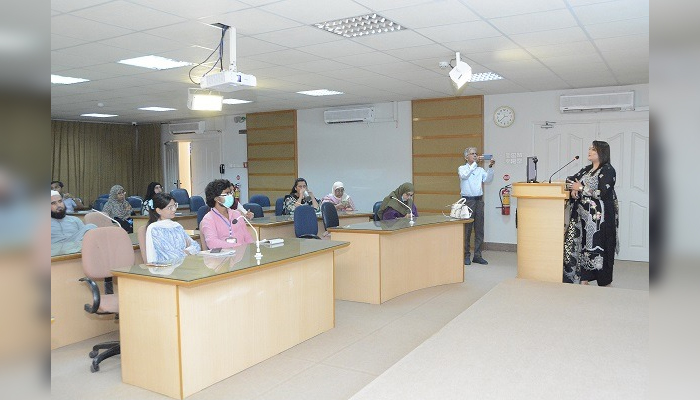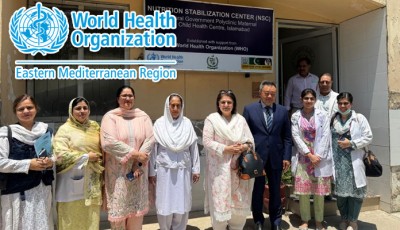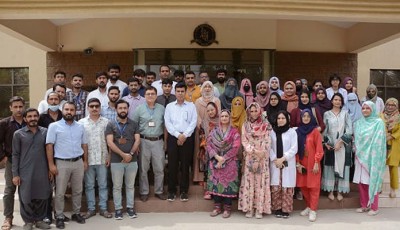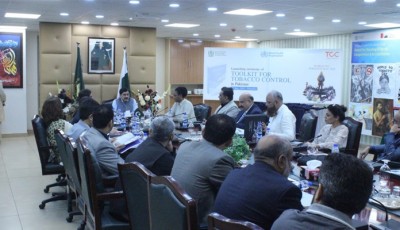KARACHI: A health expert has cautioned that the large-scale slaughter and handling of animals during Eid-ul-Adha can significantly increase the risk of zoonotic diseases—those transmitted from animals to humans—as well as gastrointestinal infections.
Speaking at a public awareness seminar, Dr. Saman Nadeem, Consultant Clinical Microbiologist and Section Head of Microbiology at the National Medical Centre, Karachi, emphasized that public awareness, personal hygiene, veterinary supervision, and community cooperation are essential to minimizing health risks during the religious festival.
The seminar, titled “Gastrointestinal Infections and Zoonotic Diseases Associated with Eid-ul-Adha: Risks, Prevention, and Management,” was held at the LEJ National Science Information Center on Thursday. It was organized by the Dr. Panjwani Center for Molecular Medicine and Drug Research (PCMD), University of Karachi, in collaboration with the Sindh Innovation, Research, and Education Network (SIREN). The event drew a large audience, including health professionals, students, scholars, and members of the general public.
Dr. Nadeem highlighted that although Eid-ul-Adha is a deeply significant cultural and religious occasion, it also presents public health challenges—especially regarding the spread of gastrointestinal and zoonotic diseases.
She warned that improper hygiene practices during animal slaughter and food preparation can lead to foodborne illnesses. “Consuming raw or undercooked meat, contamination of hands and surfaces, and lack of handwashing increase the risk of gastrointestinal infections during Eid,” she said.
While zoonotic diseases can affect anyone, Dr. Nadeem emphasized that children under five, adults over 65, pregnant women, and individuals with weakened immune systems are particularly vulnerable to severe complications.
To reduce health risks, Dr. Nadeem urged the public to:
- Maintain proper hygiene before, during, and after animal slaughter
- Use separate knives and cutting boards for raw meat and vegetables to avoid cross-contamination
- Ensure thorough cooking of meat before consumption
- Avoid excessive eating and maintain a balanced diet during Eid feasts
She also issued a special warning about Crimean-Congo Haemorrhagic Fever (CCHF), a potentially fatal viral disease transmitted through tick bites or contact with infected animal blood. She advised citizens to be vigilant and follow safety measures to protect themselves and their families.
Dr. Nadeem concluded by reiterating the need for joint efforts between health authorities, veterinary services, and the public to ensure a safe and healthy Eid for all.











